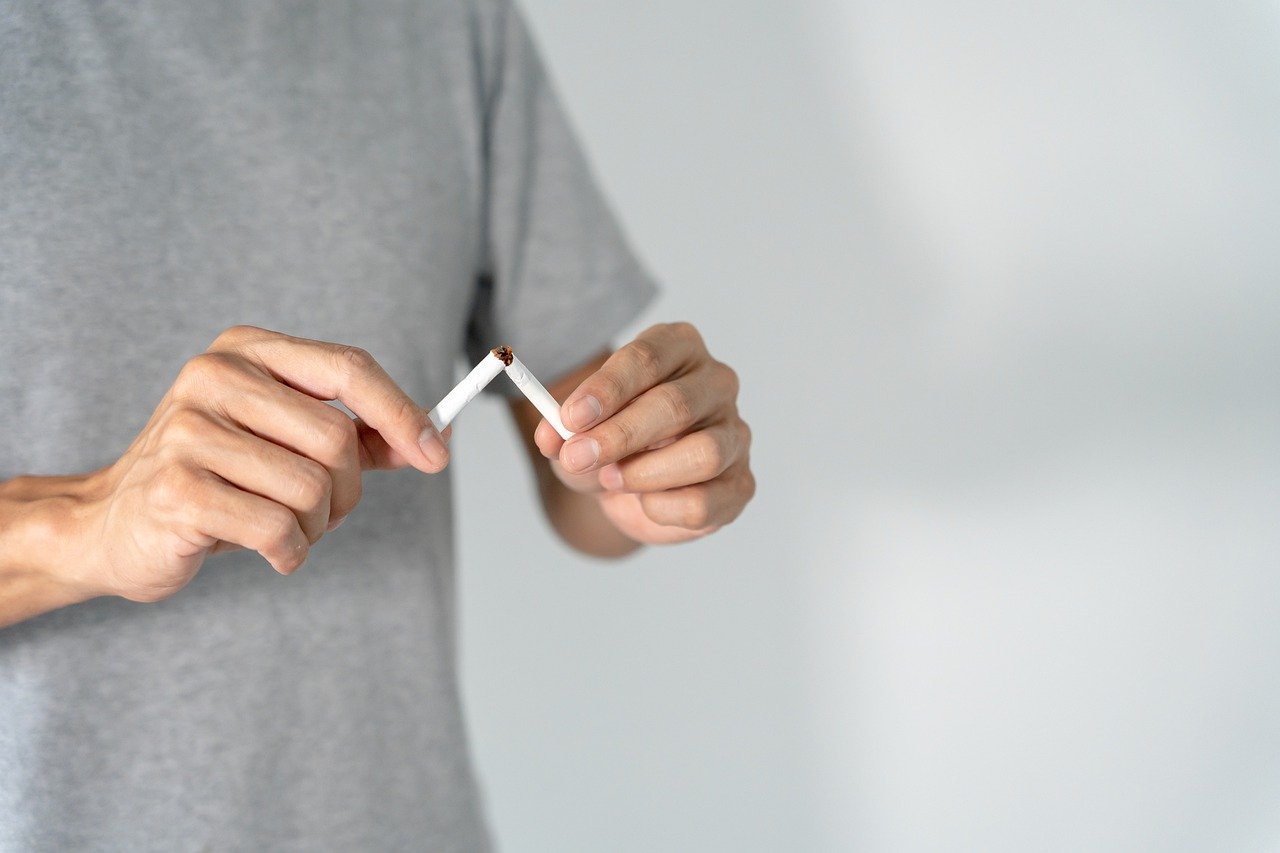August 12, 2014
Sure smoking isn't good for your lungs or your heart. But did you know that smoking isn't good for your kidneys either? The Surgeon General issued a report not long ago that said that smoking causes diseases in every organ of the body—including the kidney. People who smoke are more likely to have protein in the urine. This is a sign your kidneys are under stress. The more someone smokes, the more likely they are to show kidney damage. Smokers are also more likely to need dialysis or kidney transplants.
By quitting, you protect your children and family from illnesses caused by secondhand smoke. You also reduce the chances that they will start to smoke.
These are all good reasons, but smoking is one of the hardest habits to break. It is very hard to quit on your own. This is something to talk with your doctor about because there are treatments that help make you more successful in quitting. Using proven cessation treatments, such as FDA-approved medications and/or individual, group or phone counseling, can double your chance of success.
Your doctor knows your medical history and can play an important role in helping you get the proper treatment.
So you've decided to quit. You and your doctor have set up a plan to quit. You are ready to do it. Just how do you do it?
Join the NKF Blog Newsletter
Get inspirational stories and kidney disease resources delivered to your inbox every month. You'll gain practical insights and expert advice to help you better understand and manage your kidney health no matter where you are on your kidney journey. Subscribe today.
3. Let others know you're quitting
Your family and friends can support you. Don't hesitate to tell the people close to you about your plan. They may be there for you just when you need an encouraging word or hug. The more help you have, the better your chances are of quitting. Free programs are available at local hospitals and health centers. Call your local health department for information about programs in your area. Telephone counseling is available at 1-800-QUIT-NOW.
5. Ask about medications
There are several drugs that can help you stop smoking and lessen the urge to smoke. The U.S. Food and Drug Administration (FDA) have approved seven medications to help you quit smoking: Nicotine (gum, inhaler, nasal spray, patch and lozenge), bupropion SR, and varenicline tartrate.
6. Be prepared to fight urges
Smoking contains a drug, nicotine, which is addictive. When you stop smoking, nicotine is going to call out to you. You need to have a plan for when that happens so you don't go back to smoking. You can do something active, visit a friend, go somewhere where you can't smoke, or take a shower. If you can get through 5 or 10 minutes, you can get past the urge to smoke.
7. Get away from places where you smoked or people you smoked with
If you always had a cigarette after finishing dinner, you need a plan for what to do at that moment. Change your routine. Go out for a walk. If you always had a cigarette first thing in the morning, head straight for the shower. In the time it takes for the shower, it might be enough to get you past the urge. If you have friends who smoke, meet them in places where you can't smoke, like a movie or the mall or a restaurant that doesn't allow smoking.
8. Remind yourself about why you want to quit
On your quit date, write a list of the reasons you want to quit. Keep this list and go back to it when the urge is strong. Think about your kidneys, your heart, and your lungs. Think about the cost. Think about how healthy you will feel without smoking. Think about your family and secondhand smoke.
9. Be prepared for a roller coaster of emotions
People who quit smoking may have times when they feel depressed, anxious, irritable, and restless. They may have difficulty sleeping or concentrating. Some of these are symptoms of nicotine withdrawal and might be helped by medicines or nicotine replacement products. Some are annoyed about weight gain. They should know that most smokers gain less than 10 pounds, and regular physical activity can help maintain a healthy weight.
It's good to know that withdrawal symptoms and other problems subside over time. It helps to keep focus on how good you will feel and how healthy you will be when you get through this period. Those individuals who stop smoking for 3 months or longer have an excellent chance of remaining cigarette free for the rest of their lives.
10. Find something else to put in your hands or your mouth
You have gotten used to having something in your hands or mouth. It might be a water bottle or a lollipop. Brush your teeth every hour. Chew gum. Some people use cinnamon sticks from the spice section of the supermarket and hold them and suck on them. They may get you through an urge.
11. Practice relaxation strategies and deep breathing
When you are tempted to smoke, sit down and concentrate on your breathing. Take a deep breath, all the way down to your belly, and slowly, slowly exhale. As you exhale, remind yourself that you can do it. Feel the clean air coming out of your body. Go slowly and repeat three or four times. Within a few minutes, the urge to smoke may be gone.
12. Identify resources to help you
Many groups offer written materials, programs, and advice to help smokers quit for good. Information to help people quit smoking is also available through community hospitals, the yellow pages (under "drug abuse and addiction"), public libraries, health maintenance organizations, health fairs, bookstores, and community quit-lines. The websitehttp://www.smokefree.gov provides an online guide, Clearing the Air: Quit Smoking Today, for smokers interested in quitting. The guide covers thinking about quitting, preparing to quit, quitting, and staying quit. Clearing the Air: Quit Smoking Today is also available as a print publication.
Half of all adult smokers have quit, so you can too. You can be one of the millions of people alive today who have learned to face life without a cigarette. For staying healthy, quitting smoking is the best step you can take.
Reasons for Quitting
Here are some examples of reasons to quit:
- I will feel healthier right away. My kidneys will be healthier.
- I will have more energy and better focus.
- My senses of smell and taste will be better. I will have whiter teeth and fresher breath. I will cough less and breathe better.
- I will make my partner, friends, family, kids, grandchildren, and co-workers proud of me.
- I will be proud of myself. I will feel more in control of my life. I will be a better role model for others.
- I will no longer expose others to my second-hand smoke.
- I will have a healthier baby (if you or your partner is pregnant).
- I will have more money to spend.
- I won't have to worry: "When will I get to smoke next?" or "What do I do when I'm in a smoke-free place?"
Source: www.smokefree.gov









